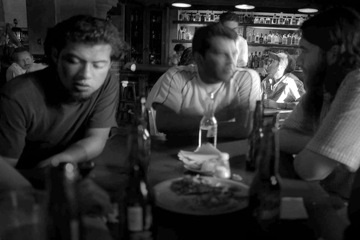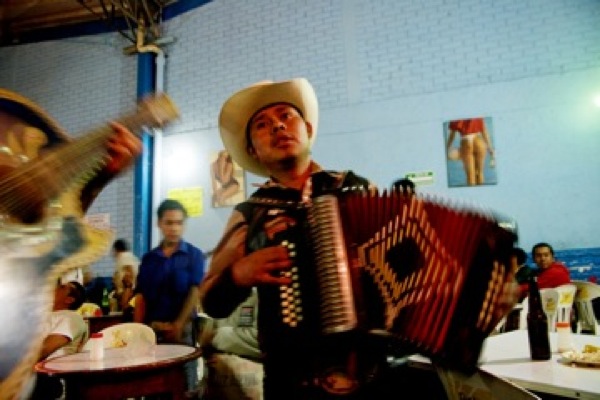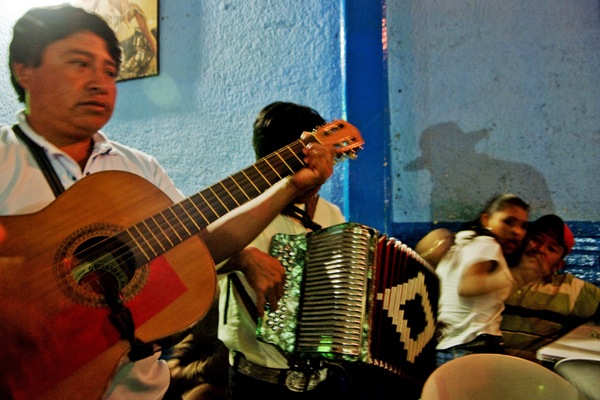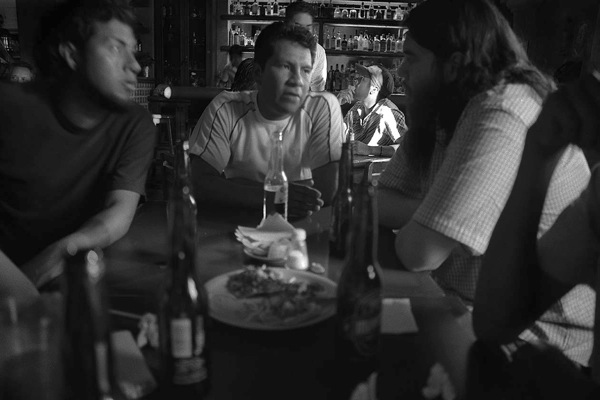I just told a peeing prostitute that Mexico has heart, I ponder, winding back to my friends. Not quite sure how I feel about that.
Photo: Jorge Santiago
We wander through the sea to find a table. The ranchera music, with its overdramatic, coordinated wailing of male singers and the vibrant abandon of horns, strings, and accordions, is overwhelming.
On top of that mariachis circulate bursting into whatever songs the customers request, creating sudden pockets of loud live guitar and accordion round the room. Add to that the rowdy displays of machismo that constitute conversation here, and it is like walking through a wave of Mexican male noises drowning one out.



